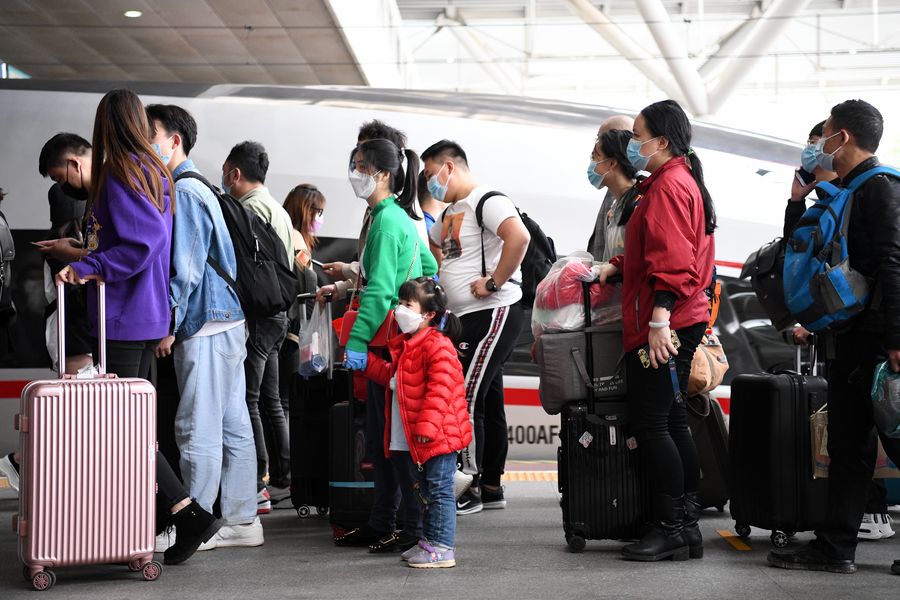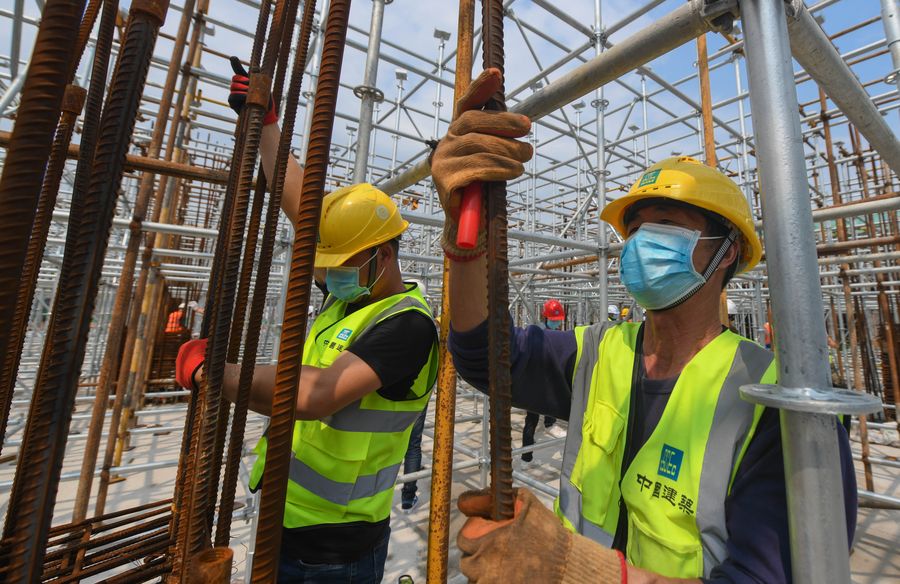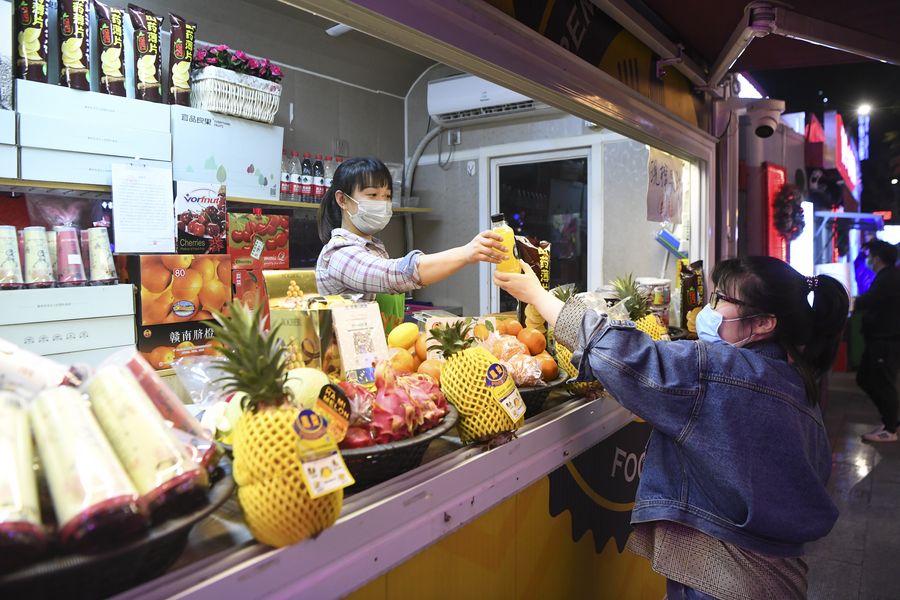Xi chairs leadership meeting on regular epidemic control, economic work

Chinese President Xi Jinping, also general secretary of the Communist Party of China Central Committee and chairman of the Central Military Commission, visits an industrial park, which produces high-end auto parts and molds, in Ningbo, east China's Zhejiang Province, March 29, 2020. (Xinhua/Ju Peng)
Xi Jinping, general secretary of the Communist Party of China (CPC) Central Committee, on Friday chaired a leadership meeting on regular COVID-19 epidemic prevention and control measures.
The meeting of the Political Bureau of the CPC Central Committee also studied the current economic situation and made arrangements for economic work.
The meeting came two days after Xi presided over a meeting of the Standing Committee of the Political Bureau of the CPC Central Committee, also on the epidemic response and economic situation.
Friday's meeting pointed out that while the positive momentum in China's epidemic response is being consolidated, the task remains formidable, requiring control measures on a regular basis and strengthened efforts to guard against both imported infections and domestic rebounds.
The meeting stressed continuous epidemic response measures in hard-hit Hubei Province and its capital city of Wuhan, including extensive nucleic acid testing among key population groups and those who volunteer to get tested.
The epidemic prevention and control work in Beijing should be further strengthened, while targeted measures should be taken across the country to guard against rebounds in cases, according to the meeting.

Passengers get off the high-speed train G1005 from Wuhan at Shenzhen North Railway Station in Shenzhen, south China's Guangdong Province, April 8, 2020. (Xinhua/Liang Xu)
The meeting also called for building a stronger defense at border cities against the virus, stressing better allocating medical resources and improving quarantine and testing capacities in these cities.
"The first quarter of 2020 was extremely unusual," a statement issued after the meeting said, noting that the sudden COVID-19 outbreak had an unprecedented impact on China's economic and social development.
China's economy has demonstrated great resilience, the statement said, adding that work and production are gradually getting back to normal levels, with the rapid development of many new industries and businesses amid the epidemic.
The meeting underlined upholding the underlying principle of pursuing progress while ensuring stability.
Efforts must be made to ensure that the epidemic will not rebound while steadying the economic fundamentals and securing people's basic livelihood.
In this regard, the country will have to take the initiative to advance work resumption at all fronts with regular COVID-19 epidemic prevention and control measures in place and fight the epidemic persistently in a bid to bring the economic and social activities completely back to normal, according to the meeting.
The meeting noted that China will use stronger macro policy tools to cushion the epidemic fallout.
It called for more proactive fiscal measures such as issuing special government bonds to support the virus fight and increasing the issuance of local government bonds as well as raising the utilization efficiency of capital to help stabilize the economy.

Staff members work at a construction site in Wuhan, central China's Hubei Province, March 26, 2020. (Xinhua/Cheng Min)
Monetary policies should be more flexible and balanced and instruments such as reserve requirement ratio cuts, interest rate reductions and reloans should be fully leveraged to ensure reasonable and sufficient liquidity and a lower interest rate in the loan market, the meeting said, stressing the need to channel capital into the real economy, especially medium-sized, small and micro enterprises.
In emphasizing the need to expand domestic demand, the meeting said it is necessary to release the potential of consumption by stimulating consumer spending and increasing public spending as appropriate. It's also imperative to expand investment by way of renovating old and dilapidated residential areas, strengthening investment in traditional and new infrastructure to advance upgrading of traditional industries, and boosting investment in emerging strategic industries.
Support should be given to sales of export products in the domestic market. Measures will be taken to improve small and medium-sized firms' abilities to survive and thrive, including advancing tax and fee cuts and lowering financing and rental costs of the firms.

A customer purchases beverage in Jiangbei District of Chongqing, southwest China, March 23, 2020. (Xinhua/Wang Quanchao)
China will also make efforts to maintain the stability and competitiveness of the country's industrial and supply chains and ensure the full completion of the poverty eradication target on schedule, said the meeting.
The meeting stressed efforts to push forward reform and firmly promote wider opening-up. The country will facilitate the smooth flow of international logistics, strictly control the quality of epidemic prevention and control supplies for export and jointly advance high-quality development under the Belt and Road Initiative.
Editor: John Li








